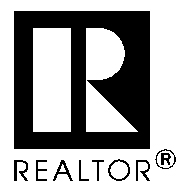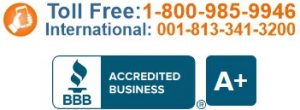How to Check a Broker’s Licensing

 We’re always advising timeshare sellers to check the licensing of a potential timeshare broker before they do business with them.
We’re always advising timeshare sellers to check the licensing of a potential timeshare broker before they do business with them.
Checking a broker’s licensing is one of the most reliable ways to ensure the reputability of a given real estate broker; but it’s come to our attention that not many people know how to check a broker’s licensing.
We’ve put together this instructive article to help consumers keep themselves safe while selling a timeshare. Read on for more information about how to verify a timeshare broker’s licensing. As vacation ownership scams continue to increase in number, it’s becoming clear that the resale of timeshares should be handled like any other real estate transaction – with the help of a licensed broker. To keep yourself safe when selling your timeshare, the first step you should take is to verify the credentials of any potential broker or real estate agent. Here’s how:
Check the Association of Real Estate License Law Officials
The first place to start your research is ARELLO® – the Association of Real Estate License Law Officials. One of the reasons consumers find it so difficult to verify licensing is that every state does things a bit differently.
ARELLO is a valuable tool because it helps encourage licensure and education recognition between jurisdictions. When you visit the ARELLO website you’ll have the option to verify licensing by either license number or the name and state in which the broker resides.
If your potential broker holds current licensing, ideally you’ll see recognition from both the National REALTORS® Database, and the state division of real estate. Bookmark both reports, and while there, take down their license number, in the “license information” section of the report.
Verify Credentials With the State
This is where things can get tricky; but if you’ve completed the first step and have a license number to search by, you shouldn’t have any problem. First, you’ll have to find the licensing authority for the particular state in which your potential broker resides.
The easiest way to do this is with a simple Google search for the [state] + “real estate licensing” authority. Because a majority of timeshare brokers live and operate in Florida, we’ll use the Sunshine State as our example.
So, to find the state licensing authority for Florida, your search might look something like this: “Florida real estate licensing”. Some states will have different terms for their real estate licensing authority like “Commission,” “Division,” or “Board.”
Because of its authority as a governmental resource on the web, the regulatory agency you’re looking for should usually show up first. From the state licensing commission, you can search by license number to learn full details like:
- Main Address/ License Location
- License Type
- License Rank
- Status (ie. Active/Not Active)
- Date License Earned
- Date License Expires
Incidentally, if you know your broker is located in Florida, you can search for licensing with the Florida Department of Business and Professional Regulation.
If you’re still unsure, pick up the phone! Call the licensing agency and ask to speak with someone in person who can help you verify the licensing. If everything checks out, you can feel confident that your potential timeshare broker is legally licensed to practice real estate in his or her state, and that any transactions they make on your behalf will be valid.
Check with the LTRBA
Recommended by the TODAY show, the Licensed Timeshare Resale Brokers Association is a group of real estate brokers who deal exclusivley with timeshares and who work hard to advocate on behalf of timeshare consumers. LTRBA members must adhere to strict membership rules that include: No Uprfront Fees, transparent and ethical resale dealings, and full-disclosure to all parties. Timeshare Broker Sales’ managing broker Don Nadeau currently serves as LTRBA membership chairman.
Bonus Points
Still, if you’re looking for brownie points; go the extra mile and check your reseller with the Better Business Bureau to find out if the broker has any complaints filed, and whether they were resolved satisfactorily. Legitimate brokers should be listed with the BBB and, better yet, BBB accredited.


